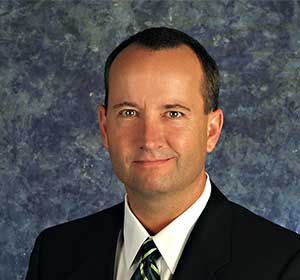Prevention and Public Health Fund
For the time being, the seven-year Republican quest to “repeal and replace” the Affordable Care Act has collapsed. While I don’t think we’ve seen the last attempt to “repeal and replace” any more than we’ve seen the last of Jason from the Friday the 13th franchise (12 installments and counting), a major threat to public health funding has been averted.
The Prevention and Public Health Fund was created by Section 4002 of the Affordable Care Act. Also known as the Prevention Fund or PPHF, it is the nation’s first mandatory funding stream dedicated to improving our nation’s public health. By law, the Fund must be used "to provide for expanded and sustained national investment in prevention and public health programs to improve health and help restrain the rate of growth in private and public health care costs." The Prevention Fund is one of the most important and largest sources of funding for prevention-focused efforts, comprising 12 percent of the budget for the Centers for Disease Control and Prevention (CDC). The Fund supports essential work at CDC and provides more than $600 million a year directly to states and communities to address their leading health concerns using the best public health approaches available.
Over the past five years, Nevada has received more than $31 million dollars through the Prevention Fund. This essential investment is already at work in Nevada, providing critical resources for state and local prevention programs to combat the leading causes of death and disability, as well as resources to strengthen the state’s public health system, including improved access to vaccines by uninsured, low-income Nevadans.
Nevada’s health rankings
Since 1990, the United Health Foundation’s “America’s Health Rankings” have tracked the status of our nation’s health and the overall health of each US state. These rankings have become established as the nation’s annual check-up and provide an opportunity to see how Nevada stacks up on health measures versus other states. Nevada’s overall health ranking among US states is currently 35th, an increase from last year’s ranking of 38th. This latest report not only indicates an improved overall ranking for Nevada over the past six years – up from 47th in 2010 – it points to notable areas of improvement.
First the good news. The most recent rankings highlight Nevada’s comparatively low infant mortality rate (rank of 16th among US states), low levels of preventable hospitalizations (13th), and comparatively low rates of obesity (15th) and physical inactivity among adults (18th). Over the past five years, preventable hospitalizations among Medicare beneficiaries have decreased by 20 percent – population health gains that also translate into cost savings for taxpayers. The report also highlights improvements in childhood and adolescent immunization rates. In the past two years, meningococcal immunization among adolescents aged 13 to 17 years increased 22 percent from 64.0 to 78.0 percent of adolescents in Nevada. Over the same period, immunizations among children aged 19 to 35 months increased 18 percent from 60.6 to 71.3 percent of young children in Nevada.
These strengths, however, are more than offset by significant population health challenges in Nevada, including chronic primary care physician workforce shortages (46th), a high percentage of the population who remain uninsured (45th), high rates of drug deaths (43rd) and violent crime (49th), and a low high school graduation rate (49th). Nevada’s high school graduation rate of 71.3 percent is well below the national average of 83.2 percent. On average a college graduate’s life expectancy is 5 years longer than those who did not complete high school. Worse, for those Nevadans without a high school education, life expectancy has decreased since the 1990s.
Public health funding in Nevada
For most of our state’s history, efforts to address Nevada’s poor rankings and enduring health challenges have been handicapped by the stunning lack of investment by Nevada law makers for basic public health services. According to the Trust for America’s Health, our state’s general fund investment in public health is a paltry $4 per person. One of our state’s longstanding dirty little secrets is our heavy reliance on public funding from the CDC and other federal agencies routinely pilloried by state politicians and pundits. The federal government spends $109 million or $38 per person per year on public health and prevention in Nevada. CDC funding $63 million or $22 per capita currently underwrites a variety of critical public health programs and services in the Silver State including:
- Chronic diseases prevention ($9.1 million)
- Ebola response and preparedness ($1.2 million)
- Emerging infectious diseases ($1.6 million)
- HIV/AIDS, hepatitis, TB and other infectious disease prevention ($4.1 million)
- Immunizations and respiratory diseases ($3.1 million)
- Injury prevention and control ($1.1 million)
- Public health preparedness ($6.5 million)
- Vaccines for children ($34.9 million)
In other words, while many Nevadans and their representatives in Carson City bemoan the federal leviathan, we’re happy to allow the beast to fund most of our state’s public health activities. Like many states, Nevada has seen significant declines in premature mortality and death rates for cancer and cardiovascular disease over the past decade, as well as progress made in addressing major risk factors to health, such as cigarette smoking and low childhood immunization rates. The efforts of state and local public health agencies and community partners, such as Immunize Nevada, have contributed mightily to these successes.
However, recent threats to the Affordable Care Act and the Prevention Fund should give Nevada health leaders and policy makers considerable pause when we consider our state’s dependence on federal dollars for core public health services. As the dust settles in Washington, Nevada has an opportunity to renew our commitment to confront formidable health challenges in our state in the coming years and to re-think how we fund public health and prevention.

